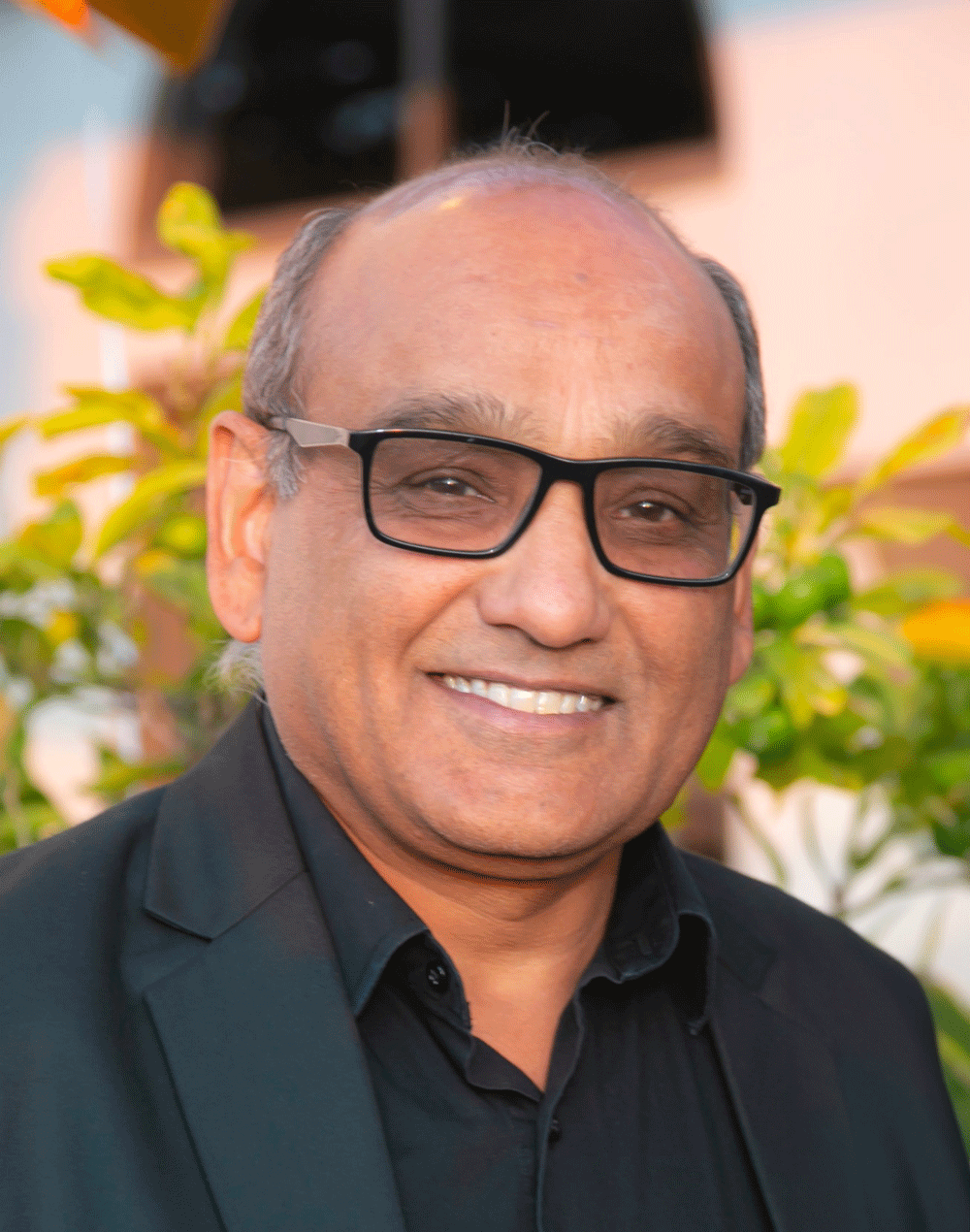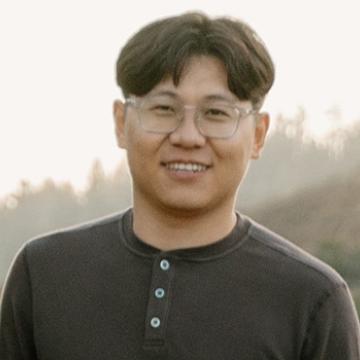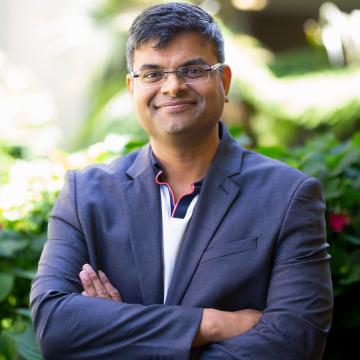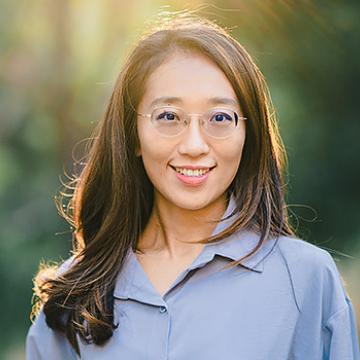Welcome to the Computer Science Department
at the University of California, Santa Barbara!
Why Computer Science?
Computer Science is an exciting, challenging, and growing field that impacts the world and everyday life in countless ways.
Computer scientists are involved in creating technology and systems that are used in a wide range of industries, including medicine, communications, entertainment, manufacturing, business, and science. CS research pushes the state-of-the-art in computing theory and practice, and it leads to new technologies that change the world.
Despite all the impressive achievements of the field, we are convinced that there are many more exciting discoveries and applications of computer science yet to come, and you can be part of this process of exploration, discovery, and invention!
Chair's Message
Distinguished Professor Divyakant Agrawal

Welcome to the Computer Science Department at the University of California, Santa Barbara!
CS@UCSB is a special place where exciting research meets exceptional teaching against the backdrop of wonderful natural beauty. As faculty, students, and staff of CS@UCSB, we feel lucky to be part of an outstanding department in the most impactful academic discipline of our times while living in one of the most beautiful places in the world!
Our Mission
The CS department at UC Santa Barbara is widely recognized as one of the top Computer Science departments in the nation, featuring a highly distinguished faculty and excellent students.
Our culture of education and research strongly encourages collaborative, entrepreneurial, supportive, multidisciplinary solutions-driven efforts at both the undergraduate and graduate levels. Our students and graduates shape the future of science and engineering here and around the world. We are committed to providing a respectful and inclusive environment for all members of our community, free from all forms of discrimination and harassment.
The Computer Science Department seeks to prepare undergraduate and graduate students for productive careers in industry, academia, and government, by providing an outstanding environment for teaching and research in the core and emerging areas of the discipline. We bring computational approaches and solutions to some of society’s most vital and complex issues. We are presently engaged in research that promises game-changing breakthroughs in computing and will bring about advances in important areas such as healthcare, communications, education, government, energy efficiency, and the environment. We believe that we will help transform the future; that computing is central to shaping and improving the world by enabling data-driven scientific discoveries and bringing a world of rich, easily-accessible information to individuals everywhere.
The department has been on an impressive upward trajectory for many years, fueled by the quality and impact of our work, the recognition of our faculty, and the success of our graduates.
Announcements
Beginning in the 2026–27 academic year, the UCSB Department of Computer Science will launch a new Bachelor of Science degree in Artificial Intelligence, responding to growing student interest and industry demand in this rapidly evolving field. Special thank you to all who helped make this achievement possible.
The inaugural UCSB Agentic AI Summit will be held on Friday, January 23, 2026, at UC Santa Barbara. They’re bringing together researchers, industry leaders, and students from across Southern California to explore how next-generation, agentic AI systems can drive both scientific discovery and real-world impact. RSVP for the event HERE.
Congratulations to Computer Science Faculty and Head of the UCSB Foundations of Fintech Research Lab, Dahlia Malkhi, on her recent appointment to the Coinbase Independent Advisory Board on Quantum Computing and Blockchain. To read the full article announcement, visit coinbase.com/blog.
News Spotlight
Five years after completing his PhD in computer science at UCSB, Xin (Eric) Wang is returning to campus as an assistant professor in the Computer Science Department. He earned his bachelor’s degree from Zhejiang University and, following the completion of his PhD, became an assistant professor in the Computer Science and Engineering Department at UC Santa Cruz. Aligning with his research interest in machine learning, Wang is also Head of Research at Simular Inc., a startup building computer use agents. Celeste Natera spoke with him earlier this month.
Arpit Gupta, assistant professor in the Computer Science Department at UC Santa Barbara, knows as well as anyone that not all networks are created equal. They range widely, from large, complex, sophisticated systems like those at government agencies or major corporations, which have extensive physical infrastructure and armies of people to support them, to much smaller systems, such as those that provide internet connectivity on Indian reservations or sparsely populated rural areas, where a much smaller and simpler system might be managed by a single person using far less sophisticated, or even repurposed, hardware.
UC Santa Barbara computer science assistant professor Murphy Yuezhen Niu, who is also a physicist, has been awarded a prestigious CAREER Award from the National Science Foundation to support her work in quantum computing.
The five-year, $630,000 grant will fund Niu’s project, “Quantum Pulse Processing — Robust and Programmable Quantum Control for Near-Term Quantum Simulation,” which is aimed at advancing a new paradigm in quantum computer engineering.
“We are leveraging advancements in the emerging area of quantum signal processing to introduce a new paradigm, called quantum pulse processing, to bridge the gap between existing gate-based approaches and purely analog approaches to quantum computing,” Niu wrote in her proposal.
A physicist by training, Niu aims to connect how quantum computers are built and how they are programmed. Current machines operate in a noisy, error-prone range known as the “intermediate scale,” typically consisting of 100 to 100,000 qubits. While they are usually programmed using discrete digital gates, their underlying operations are governed by continuous analog control pulses.






